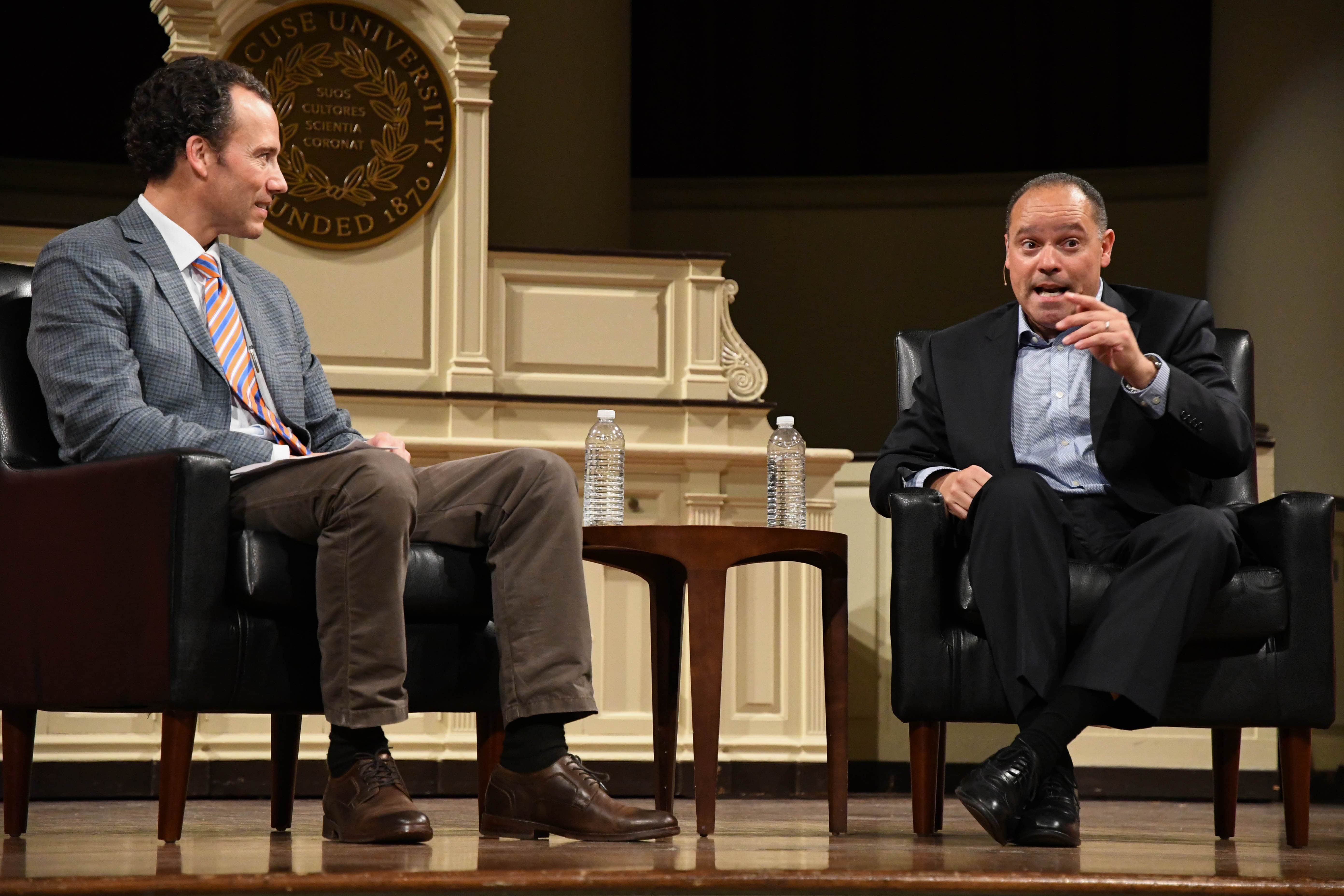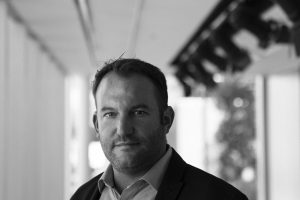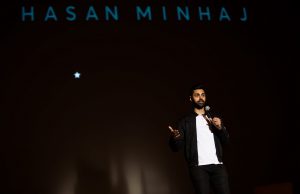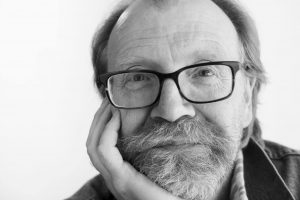Marcus Solis offers advice to aspiring journalists at University Lecture
University Lecture: Marcus Solis offers advice to aspiring journalists
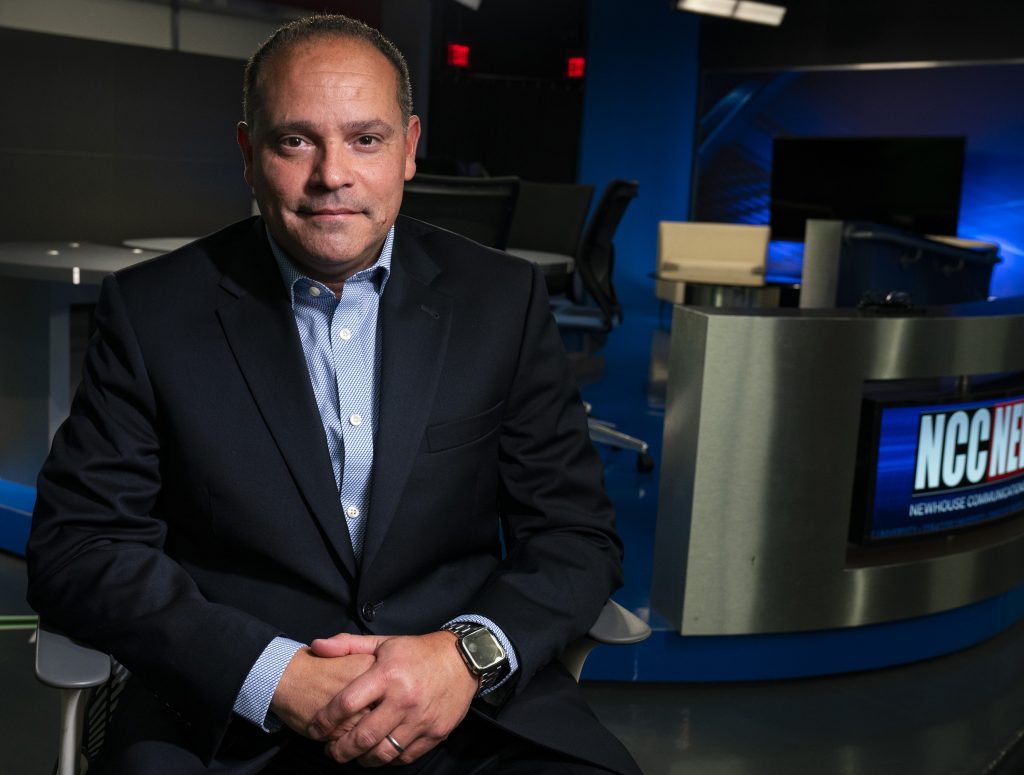
Newhouse graduate and news reporting veteran Marcus Solis of ABC News returned to Syracuse University on Tuesday for a conversation with broadcast and digital journalism Professor Simon Perez that could change the way young professionals prepare for careers in news.
Solis started his candid talk by sharing an experience landing his first job out of college through the Newhouse staff. Solis was consistent with keeping in touch with a news director, which landed him a job as a board operator. After sticking around the radio station, he became the am/pm voice and worked his way to the morning newscast.
But the Bronx native had a passion for sports and envisioned himself as a play-by-play broadcaster. Solis sent both his news and sports reel around and landed his first news job in Clarksburg West Virginia — taking a chance and betting on himself led him to a new world.
Solis learned at a rapid pace, given the fact that he was a one man band, and he worked on elevating his craft. He eventually made his way back to New York as a reporter for NY1 before becoming a broadcaster for ABC Channel 7.
“When I grew up in New York City a lot of the reporters we saw were not New Yorkers,” Solis said. “They were just people who kind of climb the mountain. They were the best at what they did and they were great broadcasters, but they weren’t necessarily New Yorkers.”
Solis has now spent 22 years in the number one market with ABC Channel 7, which is said to be unusual. Valuable storytelling is the key to longevity, he said, and the best tool to help a journalist navigate their career. Solis made it clear that each person’s journey will be different when moving toward the position that they desire in news.
He’s still so grateful to be in the business after 22 years because he approaches each day of work like it’s his first day on the job, he said. Although times have changed, he said, it’s most important to connect with the audience you broadcast to by presenting your best story and the most creative presentation each time around.
Perez requested that Solis explain what technical skills can make a difference for a journalist’s career in this day and age. Writing is a skill that not everyone focuses on, Solis said. The journalists who write the most tend to report better.
“The ability to synthesize information, what’s important, what’s not, why that’s important okay now — I want to tell that story in an interesting way,” he said.
The challenge that journalists of today face is using social media to engage with their audience. Finding the best way to tell a story in four seconds and still deliver the content needed to be informative is the approach journalists should be thinking of when covering a story. Solis said adding social media to his skill set made him a more relatable journalist.
The alumnus recalled being a senior at SU and going to visit Faith Daniels. Daniel’s advice to Solis was to be the most curious person you know. “You have to have a quest for information. You want to know what’s happening, why it’s happening.” Solis said.
